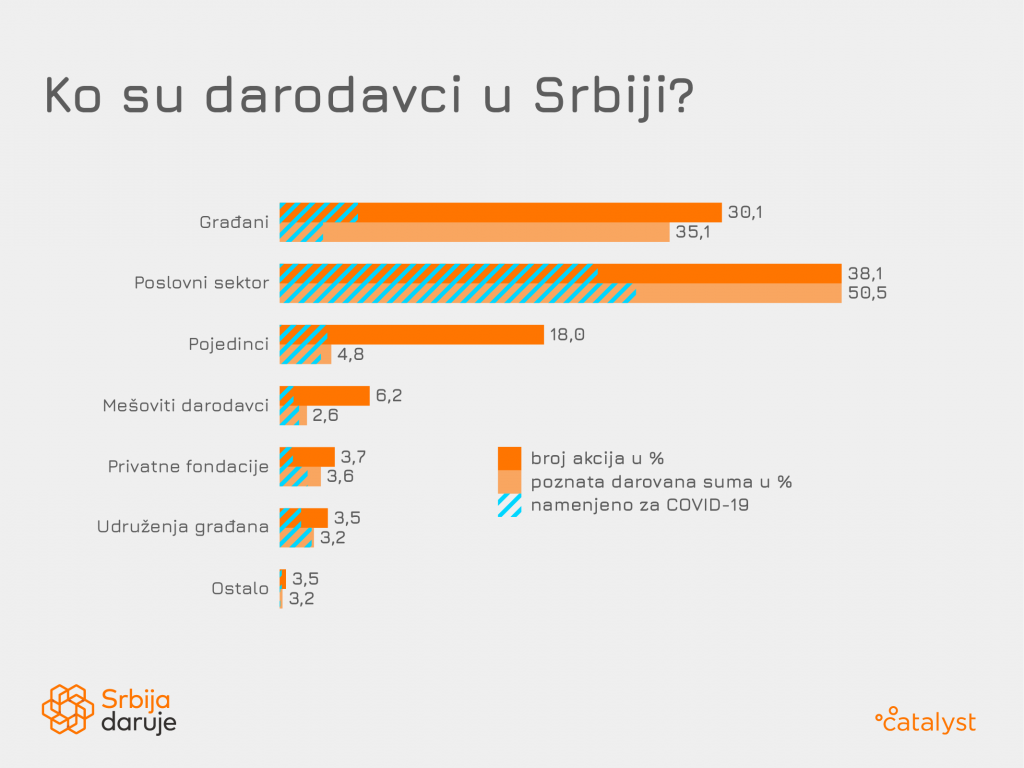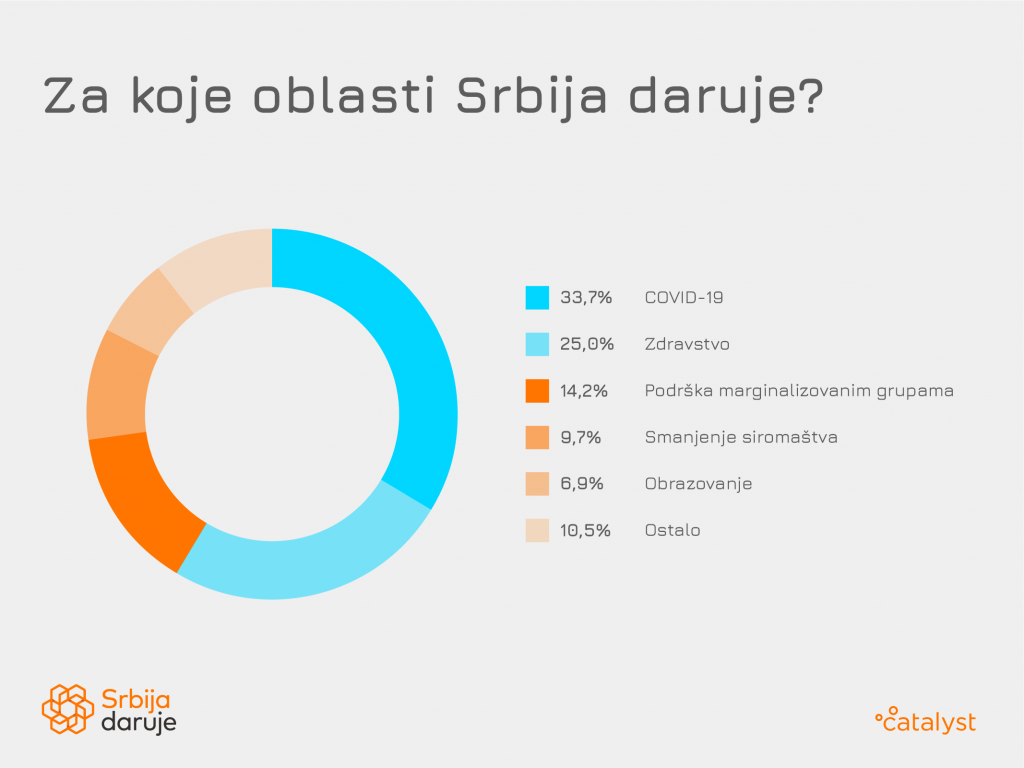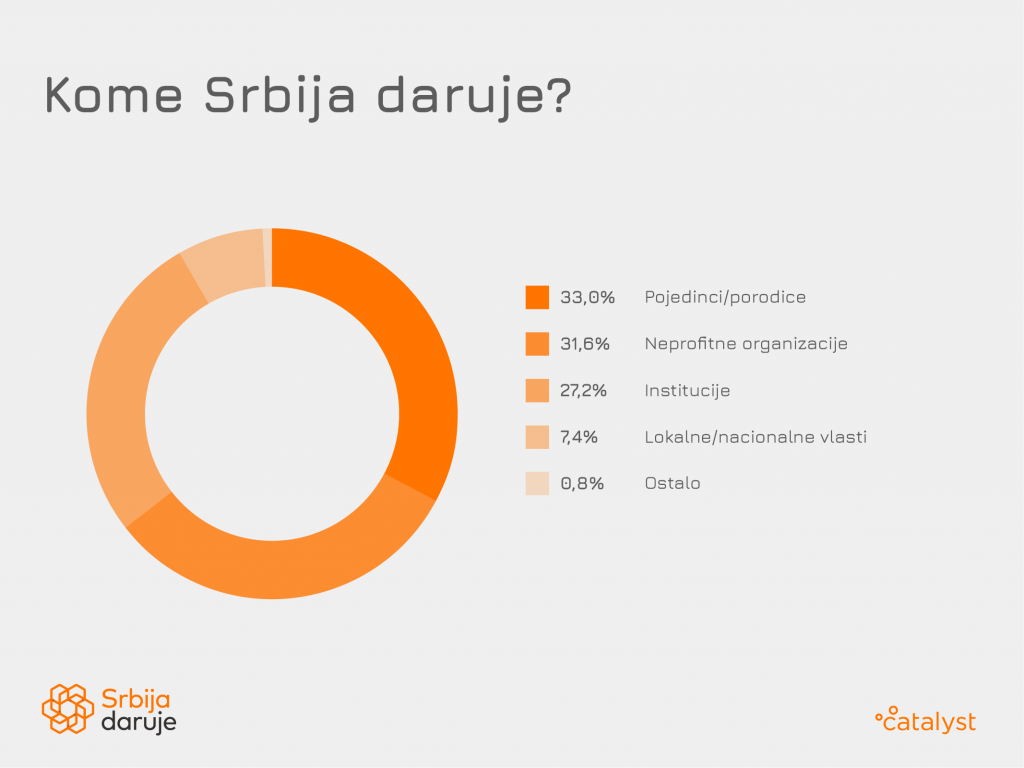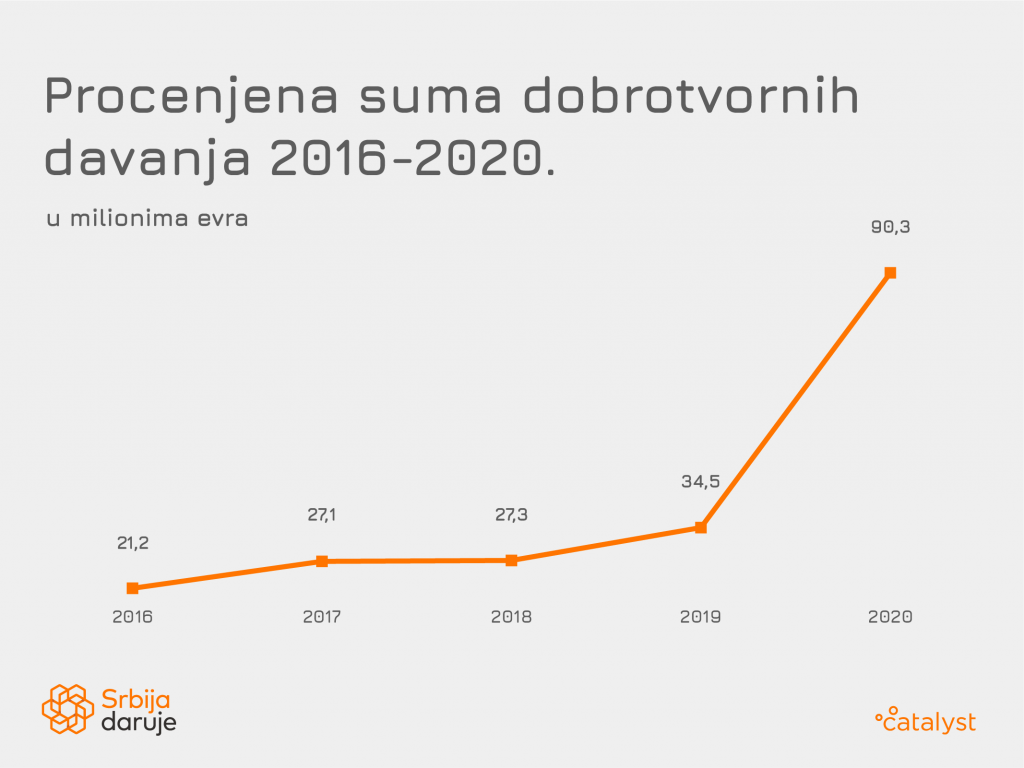According to Catalyst Balkans, in 2020, citizens and companies in Serbia donated over 90 million Euros for the common good. The total value of donations addressing the effects of the pandemic was 42.1 percent of the total amount. This is a 2.7 times increase in donations comparing to the previous year.
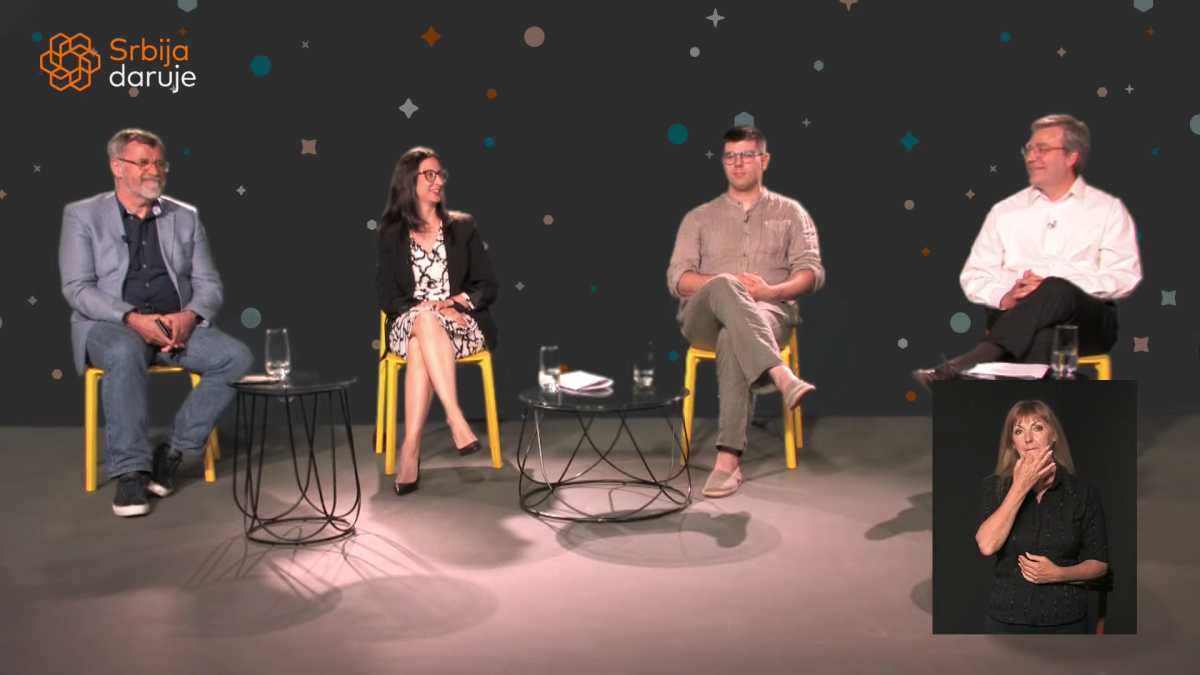
Even donations unrelated to the COVID-19 pandemic exceeded the total value of donations in 2019 by over 10 million Euros. This brought an increase in the average donations per individual from 4.9 Euros in 2019 to 13 Euros last year.
“After several years when individuals were more active donors than the corporate sector, the situation changed in 2020, with companies providing more than half of the recorded sum while the donations of individuals comprised around 35 percent. Companies have mostly been donating to the government and public institutions for the fight against COVID-19, while citizens have been actively donating via SMS for the medical treatments of individuals,” stated Nathan Koeshall, Director of Catalyst Balkans.
If we discount the fact that addressing the effects of the pandemic represented the largest share in the number of giving instances during the year, the key themes for 2020 remained the same, retaining the order as in 2019 – healthcare (25 percent), support to marginalized groups (14 percent), poverty relief (9 percent) and education (7 percent).
“Philanthropy is what reminds us in times of crisis that we are one community, one society and that only through dialog and cooperation we can build our future together. The precondition for this is the existence of trust between the donors, recipients and the public, and the only way to achieve this is full transparency in giving“, said Jelena Avramović, Project Management Specialist, USAID.
Regarding the number of instances of giving, individuals and families usually receive the largest share of donations, which remained the case in the pandemic year as well. Based on the percentage of the total donated sum, support to individuals saw a drop from 11.4 percent in 2019 to 4,4 percent in 2020. However, the pandemic had impacted the ranking of recipient groups, with the largest share of instances of support to the state instead to non-profit organizations, which was a result of the emergency situation as well as the abolition of the VAT on the donations to the health system of the Republic of Serbia during the state of emergency.
The State of Emergency inspired different ways of giving. The earlier trends and the overall picture of philanthropy has changed sufficiently to respond to the new and different needs. “On the whole, it seems that citizens, in the country and the diaspora, companies, and non-profit organizations were rapid and efficient in their response to the crisis, providing crucial support to the state in the fight against the pandemic. Even though some suggestions for the tax relief such as the abolition of VAT on the food donations were not recognized and yet could make a significant change “, said Veran Matić, Director of Serbian Philanthropy Forum.
Full report available at the link.
Research Giving Serbia 2020 – Annual Report on the State of Philanthropy is part of the project ‘Framework for Giving in Serbia’ financed by USAID and implemented by the Coalition for Giving led by Ana and Vlade Divac Foundation. Other members of the Coalition are Trag Foundation, Catalyst Balkans, Smart Kolektiv, Serbian Philanthropy Forum, Responsible Business Forum and the Serbian Chamber of Commerce and Industry. The research was carried out by Catalyst Balkans in partnership with Trag Foundation and with additional support of the Charles Stewart Mott Foundation and the Rockefeller Brothers Fund.